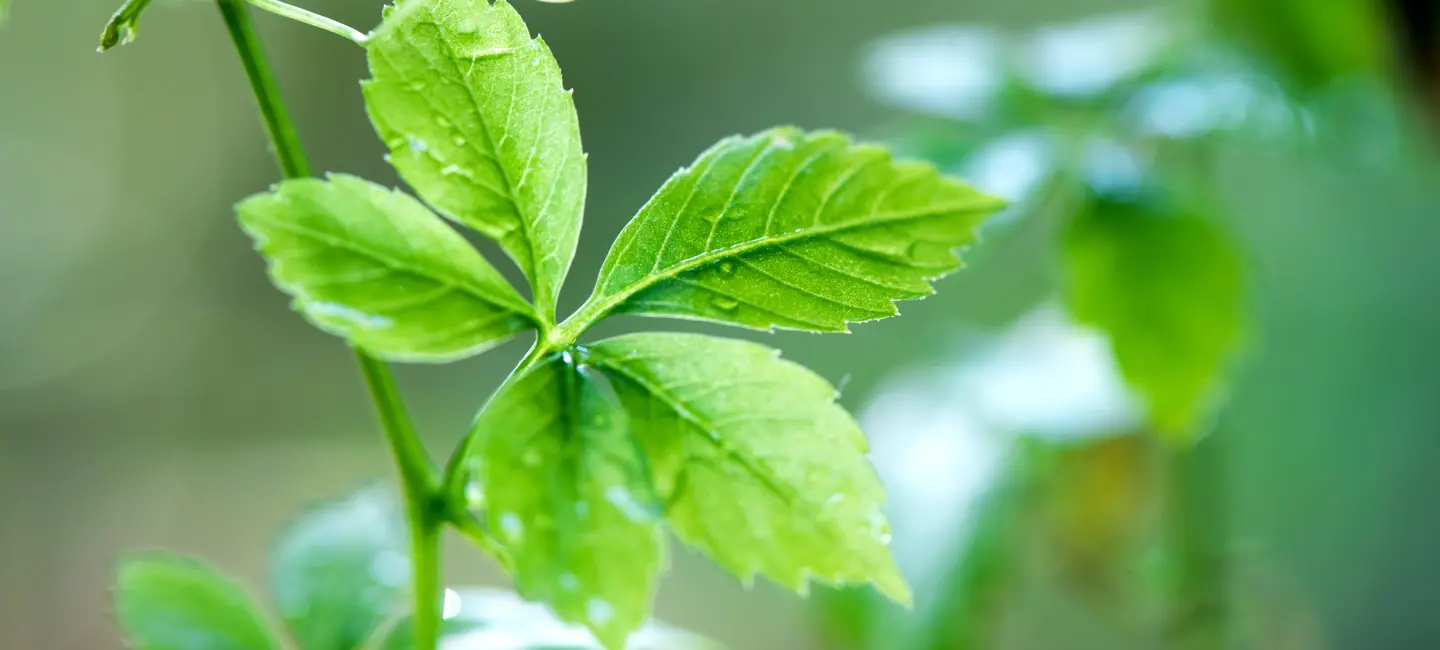
Jiaogulan (Gynostemma pentaphyllum) is a plant that grows wild in many parts of Asia. It's sometimes called Southern Ginseng or Miracle Plant.
Jiaogulan contains substances that might help reduce cholesterol levels.
People commonly use jiaogulan for high cholesterol, diabetes, liver disease, obesity, and many other conditions, but there is no good scientific evidence supporting most of these uses.
Don't confuse jiaogulan with miracle fruit, or with aloe or gymnema, which are also sometimes called miracle plant. Also, don't confuse jiaogulan with other plants that are called ginseng, including American ginseng, blue cohosh, canaigre, codonopsis, eleuthero, Panax ginseng, and Panax notoginseng. These are not the same.
Is It Effective?
NatMed Pro rates effectiveness based on scientific evidence according to the following scale: Effective, Likely Effective, Possibly Effective, Possibly Ineffective, Likely Ineffective, Ineffective, and Insufficient Evidence to Rate.
- Diabetes. Drinking jiaogulan tea seems to improve blood sugar control in people with type 2 diabetes.
There is interest in using jiaogulan for a number of other purposes, but there isn't enough reliable information to say whether it might be helpful.
Is it Safe?
When taken by mouth: Jiaogulan is possibly safe when the tea is used for up to 3 months, and when the extract is used for up to 4 months. The most common side effects are diarrhea and nausea. There isn't enough reliable information to know if jiaogulan is safe when used long-term.
Special Precautions & Warnings:
Pregnancy: Jiaogulan is possibly unsafe when taken by mouth during pregnancy. One of the chemicals in jiaogulan has been linked to possible birth defects.
Breast-feeding: There isn't enough reliable information to known if jiaogulan is safe to use when breast-feeding. Stay on the safe side and avoid use.
"Auto-immune diseases" such as multiple sclerosis (MS), lupus (systemic lupus erythematosus, SLE), rheumatoid arthritis (RA), or other conditions: Jiaogulan might cause the immune system to become more active. This could increase the symptoms of auto-immune diseases. If you have an auto-immune condition, it's best to avoid using jiaogulan until more is known.
Bleeding disorders: Jiaogulan might slow blood clotting. This might make bleeding disorders worse.
Surgery: Jiaogulan might slow blood clotting. It might increase the risk of bleeding during and after surgery. Stop using jiaogulan at least 2 weeks before a scheduled surgery.
Medications for diabetes (Antidiabetes drugs)
Interaction Rating=Moderate Be cautious with this combination.
Jiaogulan might lower blood sugar levels. Taking jiaogulan along with diabetes medications might cause blood sugar to drop too low. Monitor your blood sugar closely.
Medications that decrease the immune system (Immunosuppressants)
Interaction Rating=Moderate Be cautious with this combination.
Jiaogulan can increase the activity of the immune system. Some medications, such as those used after a transplant, decrease the activity of the immune system. Taking jiaogulan along with these medications might decrease the effects of these medications.
Medications that slow blood clotting (Anticoagulant / Antiplatelet drugs)
Interaction Rating=Moderate Be cautious with this combination.
Jiaogulan might slow blood clotting. Taking jiaogulan along with medications that also slow blood clotting might increase the risk of bruising and bleeding.
Herbs and supplements that might lower blood sugar: Jiaogulan might lower blood sugar. Taking it with other supplements with similar effects might lower blood sugar too much. Examples of supplements with this effect include aloe, bitter melon, cassia cinnamon, chromium, and prickly pear cactus.
Herbs and supplements that might slow blood clotting: Jiaogulan might slow blood clotting and increase the risk of bleeding. Taking it with other supplements with similar effects might increase the risk of bleeding in some people. Examples of supplements with this effect include garlic, ginger, ginkgo, nattokinase, and Panax ginseng.
There are no known interactions with foods.
Jiaogulan extract has most often been used by adults in doses of 200-225 mg by mouth twice daily for up to 16 weeks. Speak with a healthcare provider to find out what dose might be best for a specific condition.
Adaptogen, Adaptogène, Amachazuru, Dungkulcha, Fairy Herb, Ginseng du Sud, Gynostemma, Gynostemma pedatum, Gynostemma pentaphyllum, Herbe de l'Immortalité, Immortality Herb, Jiao Chu Lan, Jiao Gu Lan, Miracle Grass, Penta Tea, Plante de l'Immortalité, Southern Ginseng, Thé de l'Immortalité, Vitis pentaphylla, Xian Cao, Xianxao.
Information on this website is for informational use only and is not intended to replace professional medical advice, diagnosis, or treatment. While evidence-based, it is not guaranteed to be error-free and is not intended to meet any particular user’s needs or requirements or to cover all possible uses, safety concerns, interactions, outcomes, or adverse effects. Always check with your doctor or other medical professional before making healthcare decisions (including taking any medication) and do not delay or disregard seeking medical advice or treatment based on any information displayed on this website.
© TRC Healthcare 2024. All rights reserved. Use and/or distribution is permitted only pursuant to a valid license or other permission from TRC Healthcare.
